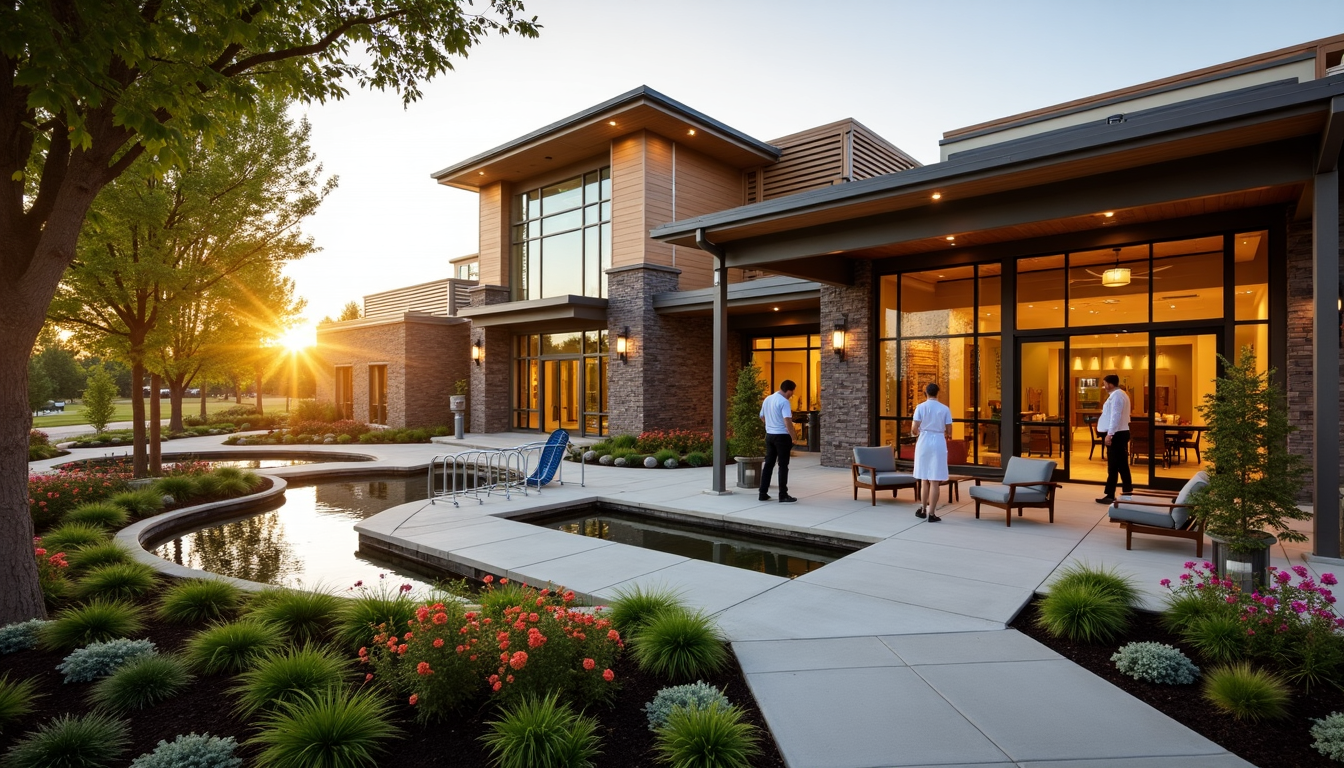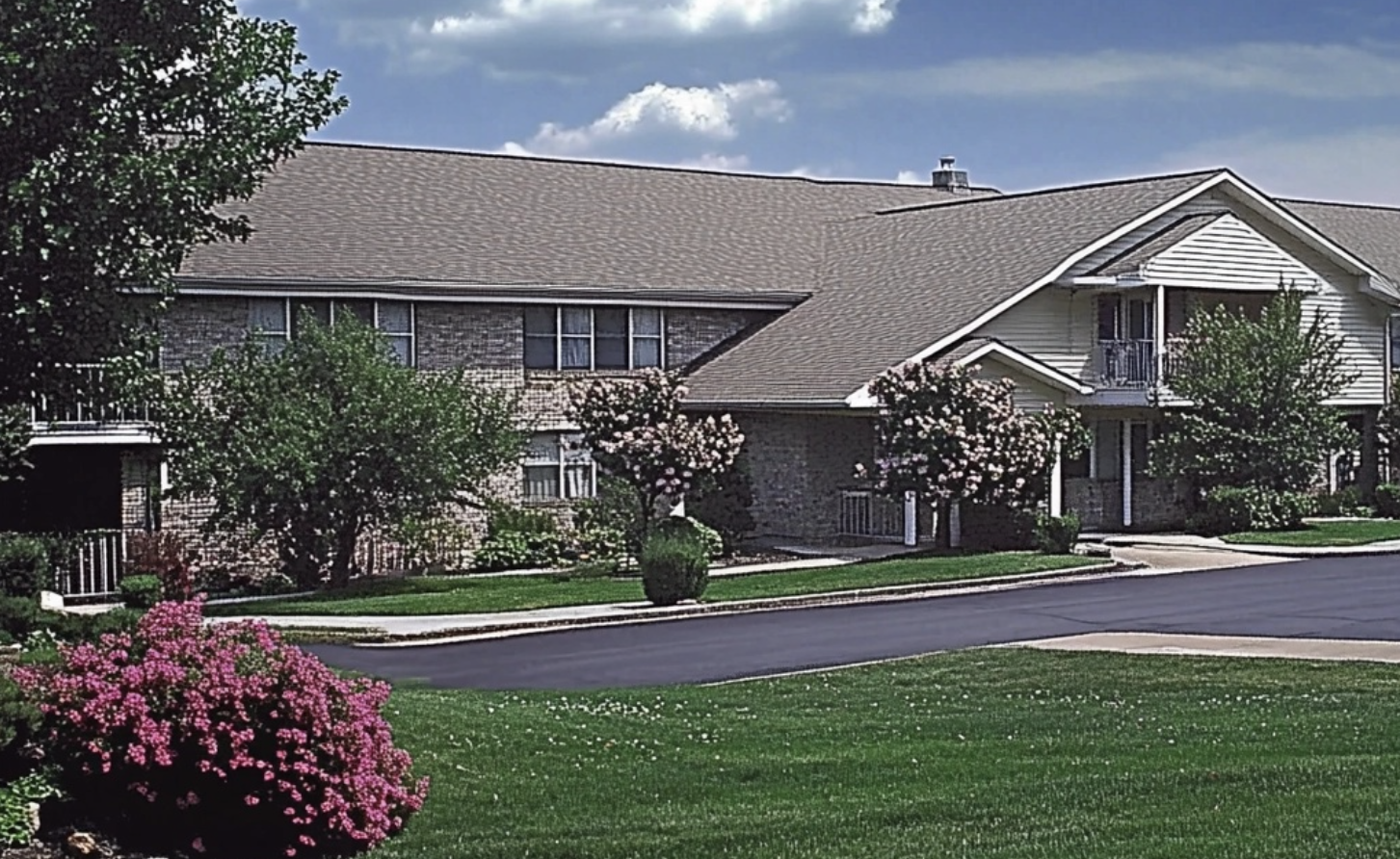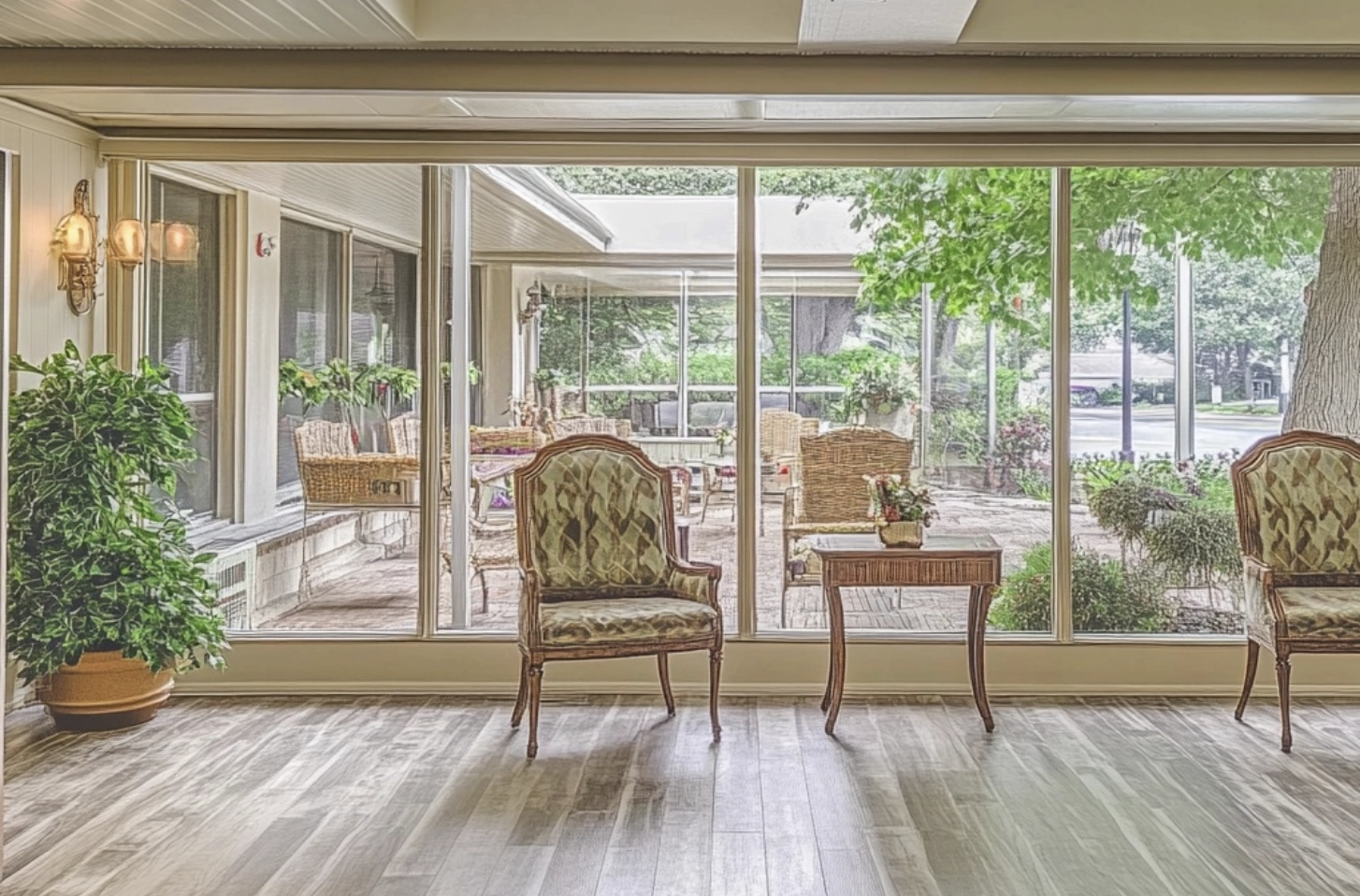Choosing the right rehabilitation center for yourself or a loved one can feel overwhelming. With so many facilities claiming to offer top-tier care, finding trustworthy information becomes crucial for making this important decision.
After spending considerable time evaluating various rehabilitation centers in Nevada, we decided to take a closer look at Rosewood Rehab Reno. This facility has been generating significant attention for its comprehensive care approach and rehabilitation programs.
Our team conducted an extensive on-site assessment, speaking with staff members, current patients, and family visitors. We examined everything from the quality of medical care to daily living conditions, ensuring no detail was overlooked.
Throughout this review, we’ll share our firsthand observations about the facility’s rehabilitation programs, staff qualifications, patient experiences, and cost considerations. Whether you’re researching options for short-term rehabilitation or long-term care, this detailed analysis will help you make an informed decision about Rosewood Rehab’s services.
Facility Overview and Location
Located in northeast Reno, Rosewood Rehabilitation Center stands as a modern healthcare facility at 2045 Silverada Boulevard. We found the location particularly accessible for both residents and visitors, offering convenient access to the city’s major thoroughfares.
Campus Layout and Accessibility
During our visit, we noticed the facility’s state-of-the-art design creates a welcoming atmosphere for patients and their families. The property features beautifully landscaped grounds, and we were particularly impressed by the following amenities:
- Outdoor garden areas for relaxation
- Well-lit dining facilities
- Dedicated exercise sections
- Available parking on premises
- Safe and secure grounds
Types of Rooms and Accommodations
The facility houses 99 total units, offering various accommodation options to suit different needs and preferences. We observed that each room maintains high standards of comfort and functionality. The available room types include:
- Private rooms with personal storage space
- Semi-private arrangements
- Spacious studio options
Additionally, all accommodations come equipped with basic utilities and WiFi connectivity. Furthermore, we noted that the facility provides comprehensive housekeeping and laundry services to ensure a comfortable stay for all residents.
Surrounding Medical Services
One of the most notable advantages of Rosewood’s location is its proximity to major healthcare facilities. In particular, the center is just a short drive from:
- Renown Regional Medical Center
- Saint Mary’s Regional Medical Center
- Northern Nevada Medical Center
This strategic positioning ensures quick access to specialized medical care whenever needed. Moreover, the facility maintains strong relationships with these medical centers, facilitating seamless coordination of care for residents requiring additional medical services.
Throughout our assessment, we observed that the facility’s layout and design effectively supports both short-term rehabilitation patients and long-term care residents. The combination of modern amenities, comfortable accommodations, and strategic location makes Rosewood a considerable option for those seeking rehabilitation services in the Reno area.
Care Services Assessment
Our detailed assessment of the medical care at Rosewood Rehabilitation reveals a complex picture of both strengths and areas needing improvement.
Nursing Staff Qualifications
The facility maintains an entirely in-house medical team, which sets it apart from many other rehabilitation centers that rely on outside contractors. Although this approach helps build stronger relationships with residents, we found that the facility faces some staffing challenges. The current staffing level stands at 3.53 nurse hours per resident per day, which falls below the state average of 4.2 hours. Nonetheless, the facility has implemented an innovative approach to staff empowerment, allowing caregivers to make critical decisions when time is of the essence.
Medical Care Protocols
At the heart of Rosewood’s care philosophy is their Integrated Cognitive Program, which we found particularly noteworthy. This program combines:
- Standardized functional assessments
- Detailed inventory of daily life activities
- Personalized therapy programs
The facility’s approach to care planning is comprehensive, certainly one of its stronger aspects. We observed that the medical team works closely with families to create what they call a “Total Care Plan”. This collaborative process ensures that treatment aligns with both medical needs and personal preferences.
Emergency Response Systems
In examining the emergency protocols, we identified several key components of their response system. The facility has established specific procedures for tracking both staff and patients during emergencies. However, we noted some concerns regarding their emergency preparedness. For instance, recent inspections highlighted the need for improved medical documentation procedures and better coordination with local hospitals.
The quality of daily care at Rosewood reflects their commitment to personalized attention. Each resident is known by name, and staff members conduct regular check-ins to assess needs and comfort levels. Still, recent state inspections have identified areas requiring enhancement, specifically in medication management and infection control protocols.
One aspect that caught our attention is their emphasis on quality of life alongside medical care. The staff works diligently to maintain resident comfort and happiness, which they’ve found leads to increased motivation during rehabilitation. Although the facility faces certain operational challenges, their focus on creating a supportive environment remains evident throughout their care delivery system.
Rehabilitation Programs
Walking through the therapy wing at Rosewood Rehabilitation Center, we immediately noticed the bustling energy of dedicated professionals working with their patients. Indeed, what sets this facility apart is their commitment to maintaining a full-time, in-house therapy team rather than relying on outside contractors.
Physical Therapy Services
The physical therapy program at Rosewood impressed us with its comprehensive approach to recovery and mobility enhancement. Their specialized team focuses on:
- Post-surgery rehabilitation
- Balance and posture improvement
- Pain management techniques
- Strength training programs
We observed that each physical therapy session is carefully tailored to individual needs, consequently leading to better outcomes for patients recovering from surgeries or injuries. The facility’s physical therapists are particularly skilled in therapeutic modalities for strengthening, balance training, and increasing range of motion.
Occupational Therapy Options
The occupational therapy department likewise caught our attention with its practical approach to daily living skills. Their certified occupational therapists work diligently to help patients regain independence in everyday activities. The program emphasizes:
- Self-care training (bathing, dressing)
- Transfer techniques
- Adaptive skill development
- Safety awareness education
Notably, the occupational therapy team designs programs that combine functional skill development with emotional support, ensuring a holistic approach to recovery. The therapists receive ongoing education to implement the latest research-based techniques.
Speech Therapy Offerings
In the speech therapy department, we found specialized programs focusing on both communication and swallowing difficulties. The speech-language pathologists demonstrate expertise in treating various conditions, with particular attention to memory enhancement and safety during daily activities.
The speech therapy program stands out for its specialized certification in electrical stimulation for swallowing dysfunction. Additionally, the therapists work closely with patients on modified diets, helping them progress toward enjoying their preferred foods again.
What truly distinguishes Rosewood’s rehabilitation approach is their collaborative care model. The therapy staff coordinates closely with nursing, social services, and family members to assess functional potential and establish unique goals for each patient. Furthermore, all therapists maintain certifications in specialty areas including wound care, neurological conditions, and lymphedema treatment.
Patient Experience Analysis
Our in-depth analysis of the patient experience at Rosewood Rehabilitation Center reveals a structured approach to care, starting from the moment patients arrive. Initially, we examined every aspect of the patient journey to provide you with a comprehensive understanding of what to expect.
Admission Process
The admission process at Rosewood begins with a thorough evaluation of each patient’s needs. We found that the facility requires several essential documents for admission:
- Government-issued ID and insurance cards
- Birth certificate or passport
- Current income verification
- Bank statements (12 months)
- Medical records and physician orders
- Power of attorney documentation (if applicable)
Subsequently, the admissions staff conducts an initial meeting with the patient and family to gather crucial information about personal needs and preferences. This collaborative approach helps create a personalized care environment from day one.
Daily Care Routines
Throughout our assessment, we observed that daily care at Rosewood follows a structured yet flexible schedule. The facility emphasizes family involvement as a crucial component of successful rehabilitation. Meanwhile, the medical team works diligently to maintain detailed care plans that address both immediate and long-term needs.
Generally, each resident receives individualized attention focusing on:
- Medication management and monitoring
- Personal hygiene assistance
- Therapeutic activities
- Nutritional support
- Social engagement opportunities
We noted that the facility maintains a strong commitment to keeping residents informed about their health status and treatment plans. Accordingly, the staff regularly updates care plans based on progress and changing needs.
Discharge Planning
One of the most noteworthy aspects of Rosewood’s approach is that discharge planning begins immediately upon admission. The facility’s comprehensive discharge strategy includes:
- Development of personalized recovery goals
- Regular progress assessments
- Coordination with family members
- Post-discharge resource planning
- Follow-up care arrangements
The social services team plays a vital role in ensuring a smooth transition home by addressing practical concerns such as:
- Meal preparation arrangements
- Transportation to follow-up appointments
- Home assistance requirements
- Ongoing therapy needs
Ultimately, we found that the facility maintains contact with patients after discharge to ensure the continued success of their recovery plan. This attention to post-discharge care demonstrates their commitment to long-term patient outcomes.
Quality Metrics and Ratings
Through our comprehensive analysis of quality metrics at Rosewood Rehab Reno, we discovered several important indicators that paint a detailed picture of the facility’s performance. Let’s examine these crucial measurements that can help inform your decision-making process.
Medicare Star Ratings
In our evaluation, we found that Rosewood Rehabilitation Center currently holds a 2-star rating from Medicare, placing it below the average performance level. This rating system evaluates:
- Overall Quality of Care
- Health Inspection Results
- Staffing Levels
- Quality Measures Implementation
Fundamentally, this rating suggests room for improvement, primarily in areas related to care delivery and facility management. The significance of these ratings extends beyond mere numbers, as they impact everything from hospital referral networks to insurance provider decisions.
State Inspection Results
Our review of state inspection records revealed some notable findings. The facility has accumulated 57 total deficiencies, including 8 infection-related concerns. These deficiencies encompass various aspects of care and operations:
- Nutrition and dietary services management
- Resident rights protection
- Care planning implementation
- Infection prevention protocols
- Staff education requirements
Evidently, the facility faces challenges in maintaining consistent quality standards. The inspection reports indicate that most deficiencies were categorized as “no actual harm with potential for more than minimal harm”. In terms of staffing, we observed that the facility provides approximately 1 hour and 45 minutes of CNA time per resident daily.
Patient Satisfaction Scores
Our analysis of patient satisfaction metrics shows a mixed performance record. The facility demonstrates both strengths and areas needing enhancement in resident care outcomes. Based on quality measures for long-stay residents:
The facility achieved notable success in several key areas:
- 96.2% of residents received seasonal influenza vaccines
- 98.3% received pneumococcal vaccines
- Only 3.6% of residents experienced falls with major injury
Ultimately, we noted that resident satisfaction scores vary across different aspects of care. The facility performs above average in some measures, such as maintaining low rates of weight loss among residents at 1.7% compared to the state average. Nevertheless, there are areas where improvement is needed, as reflected in the quality assessment findings.
In examining these metrics, we paid special attention to the turnover rates among staff members. The data shows a total nursing staff turnover rate of 54.7%, which exceeds both the Nevada state average of 50.4% and the national average of 52.0%. This turnover rate potentially impacts the consistency of care delivery and resident satisfaction.
The facility’s quality assurance group has been tasked with reviewing these deficiencies and developing corrective action plans. Through our observations, we’ve seen that while challenges exist, the administration appears committed to addressing these concerns through systematic improvements and enhanced staff training programs.
Cost and Insurance
Understanding the financial aspects of rehabilitation care often causes concern for families. As we examined Rosewood’s cost structure and insurance policies, we found several important details that might help ease these worries.
Medicare Coverage Details
First and foremost, we discovered that Rosewood has been a Medicare-certified facility since 1970. The facility’s Medicare coverage includes skilled nursing care for up to 100 days per benefit period. In essence, this coverage depends on:
- A qualifying hospital stay
- Ongoing skilled nursing needs
- Regular wellness assessments
The facility’s business office managers work closely with families to explain Medicare benefits and coverage periods. Therefore, residents can better understand their financial responsibilities before beginning their stay.
Private Insurance Options
Beyond Medicare, we found that Rosewood accepts a wide variety of insurance plans. The facility maintains relationships with numerous commercial insurance providers, as a result making the verification process smoother for incoming patients.
Before admission, the facility’s team assists with:
- Insurance verification
- Coverage confirmation
- Benefit explanation
- Pre-authorization requirements
Above all, we noted that coverage levels vary significantly among different insurance plans. As such, the facility recommends contacting your insurance provider directly to confirm specific coverage details.
Out-of-Pocket Expenses
In analyzing the cost structure, we found that Rosewood’s monthly rates range from $7,218 to $8,821. These figures place the facility’s costs slightly below the Reno average of $7,261. To provide perspective on these costs:
| Type of Cost | Amount |
|---|---|
| Starting Monthly Rate | $7,218 |
| Maximum Monthly Rate | $8,821 [272] |
| Reno Average | $7,261 [271] |
| National Average | $5,718 |
| Nevada State Average | $5,791 |
For veterans and their surviving spouses, additional financial assistance may be available through VA benefits, notably the Aid and Attendance program. In fact, the facility’s financial counselors can provide guidance on accessing these benefits.
The business office at Rosewood offers support for:
- Understanding billing procedures
- Exploring payment options
- Applying for Medicaid coverage
- Managing insurance claims
Notably, Medicaid coverage might be available for those who qualify based on both clinical needs and financial status. The facility’s staff assists families through the sometimes complex Medicaid application process, helping to gather necessary documentation and submit applications properly.
We observed that additional services might increase the base cost depending on individual care needs. To avoid surprises, we recommend discussing potential additional charges during the initial financial consultation. The facility’s transparent approach to cost discussion helps families plan effectively for both short-term and long-term stays.
For those considering long-term care options, the facility’s financial counselors provide detailed explanations of various payment methods and assistance programs. This comprehensive approach to financial planning reflects their commitment to making quality care accessible while maintaining transparency about associated costs.
Conclusion
After spending considerable time evaluating Rosewood Rehab Reno, we found a facility that offers comprehensive care despite facing certain challenges. Though their Medicare rating suggests room for improvement, several aspects of their operation stand out positively. Their in-house therapy teams deliver strong rehabilitation programs, while their admission and discharge processes demonstrate thoughtful planning for patient success.
The facility’s monthly rates remain competitive within the Reno market, certainly making it a viable option for many families. Staff dedication shows through their personalized care approaches, albeit current staffing levels fall somewhat below state averages. Their modern facility and convenient location add significant value to the overall package.
Based on our findings, Rosewood best suits patients seeking short-term rehabilitation with straightforward medical needs. Families should weigh both the facility’s strengths – particularly their therapy programs and structured care planning – against areas needing enhancement like staffing levels and quality metrics. The facility’s transparent approach to costs and insurance coverage helps families make informed decisions about their rehabilitation journey.












